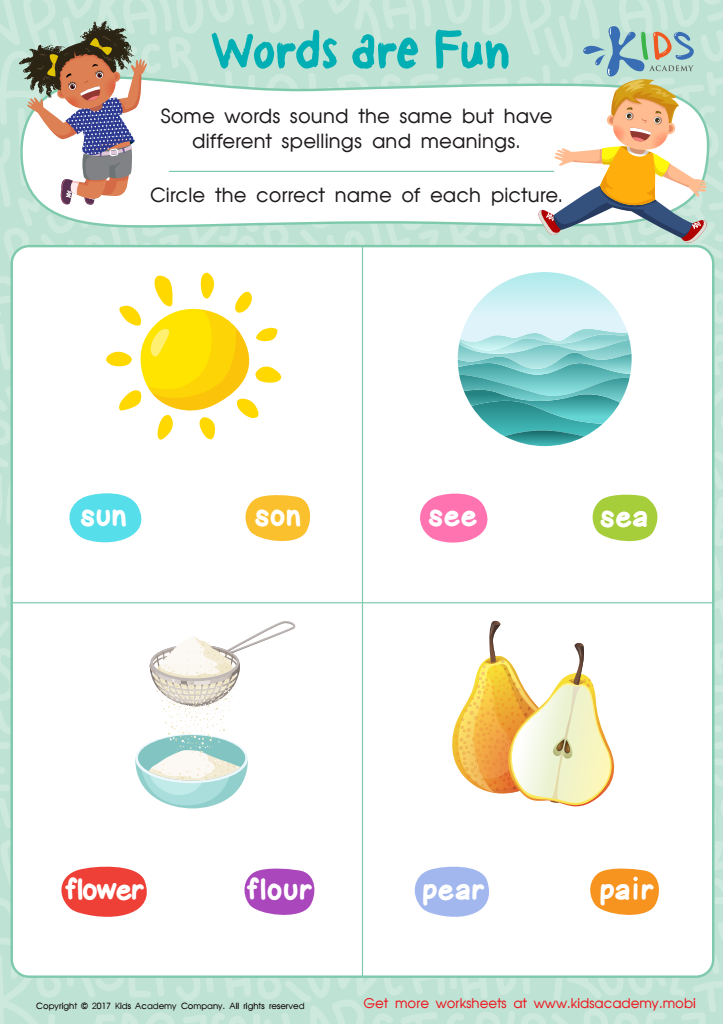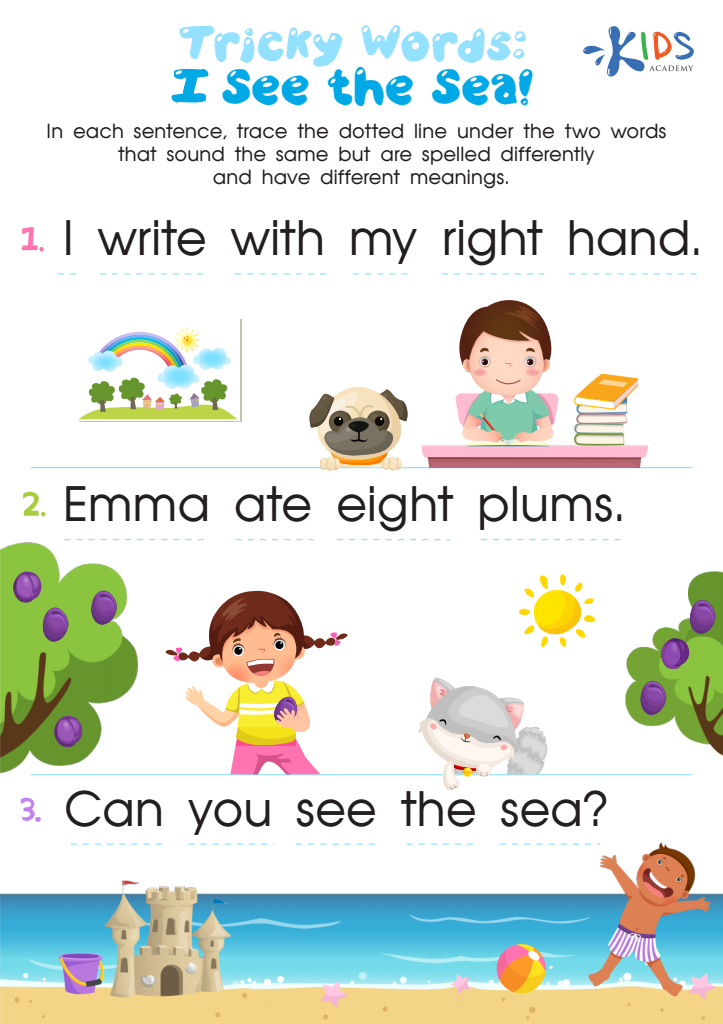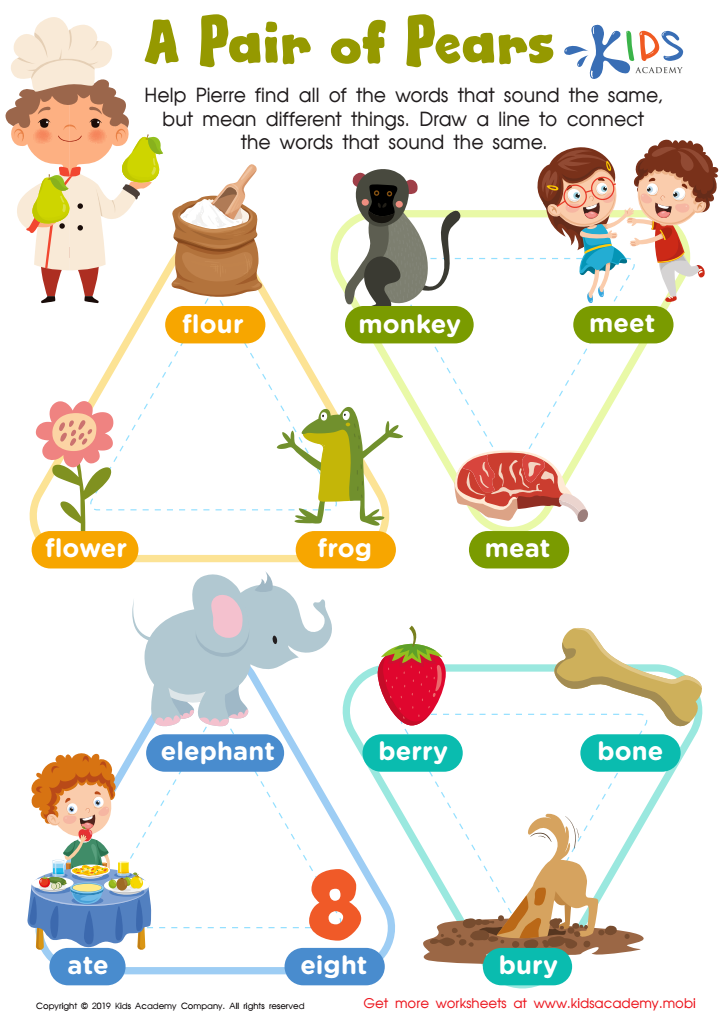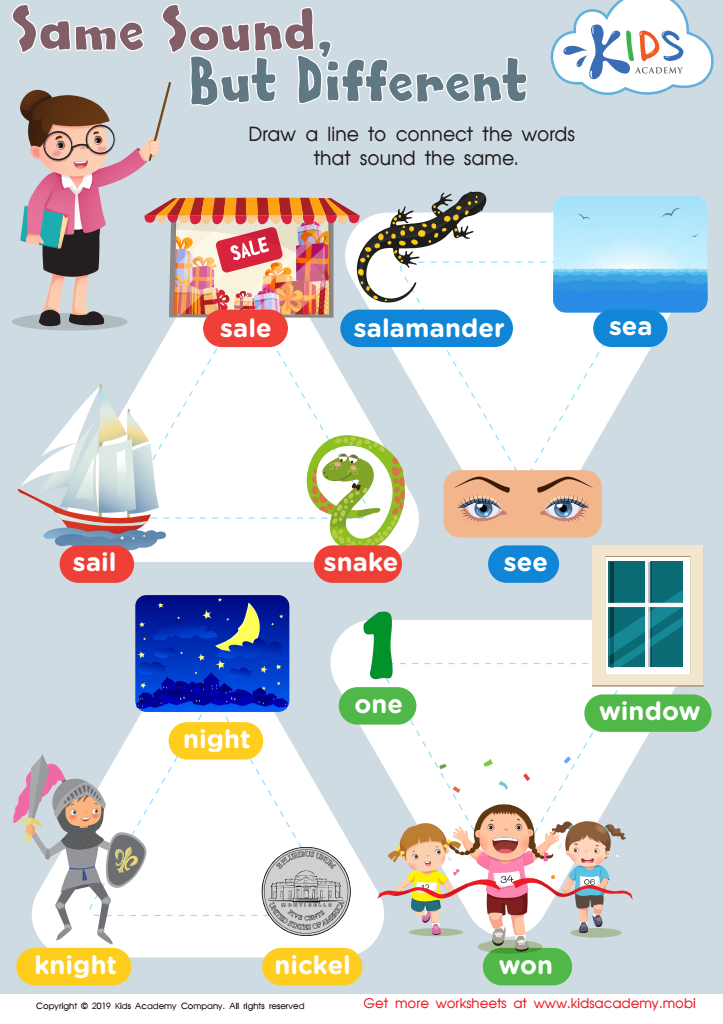Distinguish Between Similarly Spelled Words - Lesson for Kindergarten, Chapter - High Frequency Words
In this captivating lesson titled "Distinguish Between Similarly Spelled Words," kindergarten students will embark on an educational journey through the realm of High-Frequency Words, as part of their foundational reading skills unit. Through engaging activities such as "Words Are Fun Worksheet," "Tricky Words Worksheet," "Pair Pears Worksheet," "Sound Different Worksheet," and "Similarly Spelled Words," learners will develop the ability to recognize and differentiate between words that look almost alike but have different meanings and pronunciations.
Understanding the nuances between similarly spelled words is a critical component of early literacy. It not only aids in enhancing reading comprehension by allowing young learners to accurately interpret the meaning of texts but also boosts their confidence in writing by enabling them to choose the correct word based on context. This skill lays the groundwork for effective communication, a fundamental aspect of success in both academic and real-world settings.
By engaging in this interactive lesson, students will enjoy a hands-on approach to learning that makes reading fun and relatable. They will gain a stronger foundation in reading and writing, setting them up for future success in their educational journey.
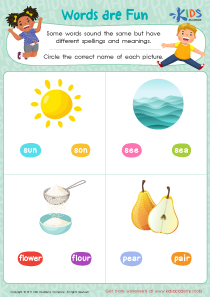
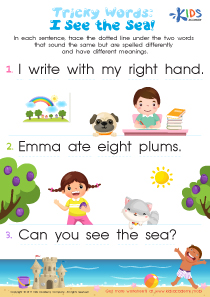
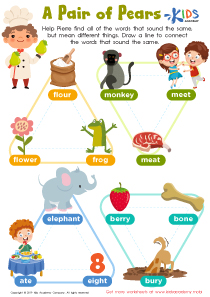
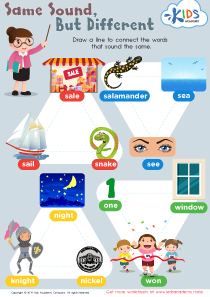
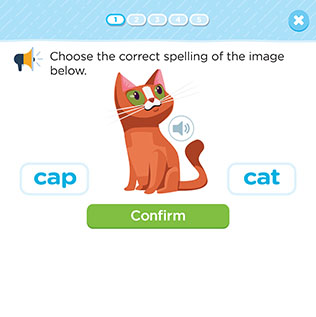
-
Activity 1 / Words Are Fun Worksheet
Homonyms are words that sound the same but have different meanings and spellings. When it comes to using them, young authors sometimes get confused. This fun and cheery PDF worksheet will let them have practice seeing various familiar homonyms, and then using the familiar pictures to identify the homonym that matches correctly. They'll also work on their fine motor skills, which is a key skill for legible and communicable writing with young authors.
-
Activity 2 / Tricky Words Worksheet
When it comes to writing, homonyms (words that sound the same but have different meanings and different spellings) can be tricky for young authors. That's why this brightly colored worksheet will give them practice using traceable lines to figure out what words in each of the easy-to-read sentences are homonyms. They'll work on fine motor skills as well, which is another important factor for effective writing with young authors.
-
Activity 3 / Pair Pears Worksheet
Homophones are words that sound alike and mean different things, and they are also spelled differently. For young readers, knowing when to use the appropriate homophone can be tricky, so having familiar imagery to reference can help their understanding in reading and writing be stronger. With this free worksheet, they'll help their friend Pierre find all the words that sound the same, but are spelled different and mean different things. They'll use the traceable lines to connect them, and in doing so pick up a picture image to have in their head to help them differentiate.
-
Activity 4 / Sound Different Worksheet
When two words sound alike but are spelled differently and mean different things, they're called homophones. Homophones can be tricky for new readers and writers because they can be confusing as to which definition and spelling is appropriate for use. This colorful homophone worksheet will help your child with the differences using familiar pictures to associate the words with. Using the traceable lines, the PDF will ask them to draw lines connecting the words that sound the same and give them concrete imagery for reference.
-
Activity 5 / Similarly Spelled Words - Quiz
In this assessment, students will use their knowledge of letter sound relationships and high frequency words to distinguish between similarly spelled words.
